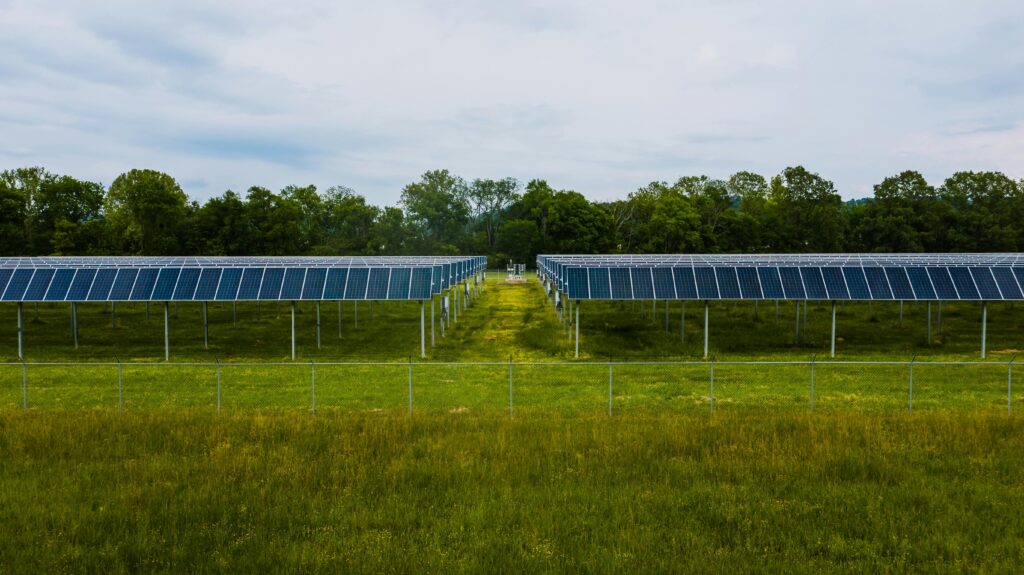Introduction
With the global transition to renewable energy, solar power has become one of the most favored and sustainable options. Central to this movement is the growing demand for solar panel installation, which helps homes and businesses harness the sun’s energy. While solar panels are essential for capturing sunlight and converting it into usable electricity, skilled electricial play a critical role in ensuring these systems are installed safely and efficiently. In this article, we’ll explore the vital role electricians have in solar panel installation, from wiring to long-term maintenance
The Increasing Significance of Renewable Energy in Modern Society

Renewable energy is becoming increasingly important as we look for cleaner, more sustainable alternatives to traditional fossil fuels. Solar power, wind energy, and hydroelectricity are all examples of renewable energy sources that help reduce carbon emissions and promote environmental sustainability. Solar power has gained widespread popularity among homeowners and businesses aiming to cut energy costs and minimize their environmental impact.By investing in solar panel systems, individuals can tap into a reliable source of renewable energy, ensuring a cleaner, greener future.
The Growth of Solar Energy
Solar energy is one of the fastest-growing renewable energy sources in the world, with millions of homes and businesses adopting solar panel systems to generate their own electricity. Solar panels capture sunlight and convert it into direct current (DC) electricity, which is then transformed into alternating current (AC) electricity using an inverter, making it suitable for use in homes, businesses, and the grid.
This rise in solar energy has brought a significant demand for professionals who can install and maintain solar panel systems. Electricians are essential in guaranteeing that these installations are completed safely and adhere to electrical regulations.
Why Electricians Are Essential in Solar Panel Installation
While solar panel installation involves various components such as panels, inverters, and mounting equipment, the electrical work is a crucial part of the process. Here’s why electricians are essential in solar panel installations:
1. Ensuring Safety and Compliance
Solar panel systems require a deep understanding of electrical circuits and wiring to ensure they are connected safely to the grid or an electrical panel. Licensed electricians are well-versed in national and local electrical codes, ensuring installations meet regulatory standards and provide safety for both the property and its occupants.
Solar panel systems generate electricity, and improper wiring or connections can lead to serious safety risks, including electric shocks, fires, or system failures. An experienced electrician knows how to handle the complex wiring involved in connecting solar panels, inverters, and storage systems like batteries. Electricians are also trained to install grounding systems, which are essential to prevent electrical faults.
2. System Design and Load Management
Electricians play a key role in planning and designing the electrical infrastructure for solar panel installations. They assess the property’s existing electrical setup, determine the right placement for components, and ensure that the system is compatible with the home’s energy usage.
Load management is particularly important when installing solar panels. Electricians calculate the total energy consumption of a home or business to determine the number of solar panels needed to meet or offset the energy demand. They also verify that the electrical panel and wiring are capable of managing the extra load introduced by the solar system. Proper load management prevents system overloads, which could result in blown fuses, tripped breakers, or even damage to appliances.
3. Wiring and Connection of Solar Panels
One of the core responsibilities of an electrician in solar panel installation is connecting the solar panels to the inverter and the electrical system of the building. This involves precise wiring that allows the solar panels to deliver electricity efficiently and safely. Electricians ensure that:
- Wires are properly insulated to avoid electrical shorts.
- The appropriate wire gauge is selected to safely manage the electrical current in the system.
- Proper grounding and bonding are crucial for safeguarding the system against electrical faults.
- Inverters are installed and connected to transform DC into usable AC electricity.
4. Installation of Solar Inverters and Batteries
In addition to wiring the solar panels, electricians are responsible for installing the solar inverter and battery storage systems (if applicable). The inverter plays a crucial role by converting the direct current (DC) generated by solar panels into alternating current (AC), making it usable for household appliances. which can be used by appliances in the home or fed back into the electrical grid.
Electricians ensure that inverters are installed correctly and in a location where they are protected from weather and overheating. For homeowners who opt for energy storage solutions, electricians also handle the installation of solar batteries, which store excess energy produced by the solar panels. The stored energy can be utilized during periods of limited sunlight or in the event of power outages.
5. Integration with the Electrical Grid
Numerous solar panel systems are designed to be grid-tied, allowing them to connect directly to the local utility grid. Electricians ensure the system safely returns surplus electricity to the grid, a process called net metering. a process known as net metering. Net metering allows homeowners to receive credit for the extra energy they generate and return to the grid, reducing their overall electricity bills.
Connecting a solar panel system to the grid requires advanced electrical knowledge, as it involves interfacing with the local utility company’s infrastructure. Electricians work closely with the utility provider to ensure the system is properly synchronized with the grid, and that it complies with local regulations and standards.
Conclusion
As the demand for renewable energy sources like solar power continues to rise, the role of electricians in solar panel installation is becoming increasingly important. Electricians are critical to ensuring that solar systems are installed safely, connected correctly, and maintained for long-term efficiency. From wiring and load management to system testing and grid integration, electricians provide the expertise needed to harness the power of the sun and make homes more energy-efficient.














